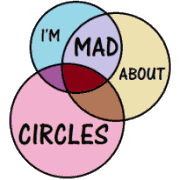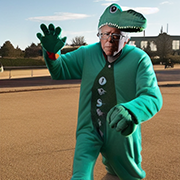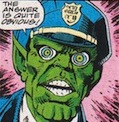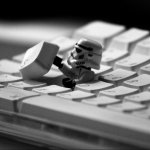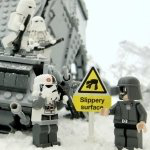|
I like South Korea. It seems to mostly have a business culture in which I'd fit in, apart from being as tan as a sicillian. One thing I don't like is that this korean chick I used to hook up with worked at one of those big financials in Gangnam, where they made her serve tea despite her master's in econ. The gently caress is up with that?
|
|
|
|

|
| # ? Jun 3, 2024 11:07 |
|
This thread is loving terrible. (USER WAS PUT ON PROBATION FOR THIS POST)
|
|
|
|
mobby_6kl posted:Yeah what I'm particularly curious about is how that worked with regards to the UN and US after the war. Obviously they'd have to be still best buddies and it's not like the US was particularly picky about that sort of stuff during the cold war, but still. Were there any efforts to influence the government to be less lovely or what? South Korea sent over 300,000 troops to Vietnam. The only country to send more troops to Vietnam was the US itself. Compared to that, rigging a few elections and summarily executing a few thousand political prisoners is water under the bridge. The South Korean dictators made quite sure to stay on America's good side.
|
|
|
|
My Imaginary GF posted:I like South Korea. It seems to mostly have a business culture in which I'd fit in, apart from being as tan as a sicillian. That's Confucianist culture for you. Women aren't worth poo poo. Oh yeah, also you better not be fat if you want to "fit in" their business culture.
|
|
|
|
Main Paineframe posted:http://newamericamedia.org/2013/03/why-late-south-korean-dictator-park-chung-hee-is-the-most-popular-president-ever.php quote:...outlawing miniskirts and rock and roll (a move that, according to the South Korean guitar god Shin Joong-hyun, set back the cause of Korean rock, and opened up the way for the electronic pop music that still dominates today) J-rock is the only form of Asian pop music even remotely tolerable, so if that's true that's pretty much all you need to condemn the dude IMO Main Paineframe posted:South Korea sent over 300,000 troops to Vietnam. The only country to send more troops to Vietnam was the US itself. Compared to that, rigging a few elections and summarily executing a few thousand political prisoners is water under the bridge. The South Korean dictators made quite sure to stay on America's good side. Also weren't the Korean troops in Vietnam some of the absolute worst war criminals in the whole thing? icantfindaname fucked around with this message at 01:17 on Aug 27, 2015 |
|
|
|
Lord of the Llamas posted:This thread is loving terrible. This isn't a library where you can get silence when listening to your own farts. Perspectives from more influential parts of the world will comment when idiots are about to blow themselves up like the Korean Peninsula.
|
|
|
|
icantfindaname posted:J-rock is the only form of Asian pop music even remotely tolerable, so if that's true that's pretty much all you need to condemn the dude IMO Park's relationship with rock is hosed up for real. He commissioned the father of nascent Korean rock, Shin Jung-hyun, to write a NK-esque praise anthem about him. Shin told him to go gently caress himself and as a result was harassed, wrongfully imprisoned for posession, and he was banned from all public performances. Park continued suppressing rock and the culture associated with it after Shin's ban. By the time Park died it was too late, and what would become proto-K-pop had sunk its claws deep already, and the scene was already gone. https://www.youtube.com/watch?v=gYTD5mFc2zU Haunting, soulful psychedelic rock. This is really the direction Korean music was going (away from trot), but without rock (and Shin) it devolved into the garbage pap that South Korea shits out every year. It's not really getting any better, either - K-pop still makes too much money selling borderline softcore to SE Asia, and now Koreaphile white kids are opening up as a market. It'll never really hit in America, but it'll do well enough so that the music coming out of Korea will continue to suck for a long time. Korea actually has a really great punk/metal scene, but the vast majority of the bands fizzle out when they have to do their forced conscription. However, one of the best punk shows I've ever seen anywhere was an all-female four piece that absolutely killed it, so maybe there is hope for the future.
|
|
|
|
Well at least they got this guy: https://www.youtube.com/watch?v=OPWjNX4PBlI
|
|
|
|
icantfindaname posted:
Oh poo poo, what a monster!
|
|
|
|
icantfindaname posted:Also weren't the Korean troops in Vietnam some of the absolute worst war criminals in the whole thing? War crimes weren't exactly in short supply in the Vietnam War, but Korean troops are thought to have been responsible for a number of massacres of unarmed civilians, often slaughtering entire villages. None of them were reported to outside authorities the way My Lai was, though, so information about them is relatively scarce. The South Korean government denies everything, which isn't terribly surprising (it's only been a few years since it admitted to the slaughter of literally thousands of South Korean civilians during and after the Korean War), but independent research suggests that South Koreans weren't shy about rounding up and shooting entire villages. http://www.newsweek.com/south-koreas-vietnam-157627 quote:April 1, 1967, should have been a forgettable day for Nguyen Van Thoi. He'd trudged off, as he did most mornings, to work in the rice fields near his village of Vinh Xuan in South Vietnam. True, he had more than the usual war worries to think about : South Korean soldiers, in Vietnam to help the United States fight the communists, had recently conducted sweeps through nearby villages. The Koreans had forced the neighboring farmers at gunpoint to move into special enclaves, enclosed by barbed wire, euphemistically called New Life Villages. The Korean strategy was to put the locals out of the reach of the Viet Cong. But for poor peasants like Thoi, the promise of a "New Life" was a lie. He didn't want to become an internal refugee. He wanted to stay home. The question of South Korean conduct in the Vietnam War also has one other facet that this article didn't cover: Many South Koreans never received reparations from Japan for wartime atrocities, because the Park government signed a treaty with Japan in the 60s renouncing all claims against pre-1945 Japanese conduct in exchange for opening of trade and investment (which the South Korean economy desperately needed), as well as a one-time payment (which the government kept and spent itself instead of giving it to the victims). In spite of that treaty, many South Koreans are still pushing for reparations from Japan, and the Korean courts are beginning to lean in favor of them. On the other hand, Vietnam has received nothing at all in the way of war reparations from South Korea, and has been reluctant to push the issue since South Korean trade and investment has been a major boon to the Vietnamese economy since the two countries normalized relations in 1992. If South Korea admits to war crimes in Vietnam, then it will be put in the awkward diplomatic position of claiming even more reparations for Japanese war crimes while denying any reparations at all for its own war crimes.
|
|
|
|
Why doesn't Japan then just pay Vietnam directly? Seems like that would solve the problem for everyone. Unless Vietnam committed war crimes against Japan, in which case it's even better and reparations could be canceled out.
|
|
|
|
Are you proposing a solution where Japan acknowledges guilt for atrocities they have ample opportunity to deny responsibility for? That will never happen.
|
|
|
|
Found an account of Korean war crimes in Vietnam and a comparison with My Lai, just in case we needed a reminder that the Vietnam War was terrible. http://www.japanfocus.org/-heonik-kwon/2451/article.html quote:At least six large-scale civilian massacres took place during the first three months of 1968, beginning at Truong Giang (in Dien Trung commune) and Duy Xuyen in the west, and including An Truong (in Dien Phong commune) and Phong Nhi and Phong Nhat (in Dien An commune) in the middle, and ending at Ha My (in Dien Duong commune) and Cam Ha on the eastern coast.[25] Two secret reports made by the district communist cells to the provincial authority recorded nineteen incidents of mass killing during this short period.[26] The tragedy of mass killing had already been witnessed in Quang Ngai in 1966.[27]
|
|
|
|
Main Paineframe posted:On the other hand, Vietnam has received nothing at all in the way of war reparations from South Korea, and has been reluctant to push the issue since South Korean trade and investment has been a major boon to the Vietnamese economy since the two countries normalized relations in 1992. If South Korea admits to war crimes in Vietnam, then it will be put in the awkward diplomatic position of claiming even more reparations for Japanese war crimes while denying any reparations at all for its own war crimes. Well it would also be kind of awkward for the Vietnamese government because they were carrying out their own massacres of civilians during the war too. I have a feeling it's been "forgotten" because everyone involved wants it that way.
|
|
|
|
Korean officers were just pissed because they served under the Imperial Japanese/Manchukuo Armed Forces and lost the war some 20 years ago. South Korea had lots of officers who collaborated with Japan in WW2, like Park Chunghee himself. Either that or they wanted to put it out on the Vietnamese after decades of Japanese occupation.
|
|
|
|
Halloween Jack posted:Are you proposing a solution where Japan acknowledges guilt for atrocities they have ample opportunity to deny responsibility for? That will never happen. Because it's already happened, and has been happening for at least a generation?
|
|
|
|
Has Japan ever directly apologized for the Korean colonization stuff or just for invading China in WW2?
|
|
|
|
Lessee herequote:June 22, 1965: Minister of Foreign Affairs Shiina Etsusaburo said to the people of South Korea: "In our two countries' long history there have been unfortunate times, it is truly regrettable and we are deeply remorseful" quote:August 26, 1982: Chief Cabinet Secretary Kiichi Miyazawa said to the people of the Republic of Korea: "1. The Japanese Government and the Japanese people are deeply aware of the fact that acts by our country in the past caused tremendous suffering and damage to the peoples of Asian countries, including the Republic of Korea (ROK) and China, and have followed the path of a pacifist state with remorse and determination that such acts must never be repeated. Japan has recognized, in the Japan-ROK Joint Communique, of 1965, that the 'past relations are regrettable, and Japan feels deep remorse,' quote:1989: Prime Minister Takeshita Noboru, in a speech in the Japanese Diet, said:"As we have made clear previously at repeated opportunities, the Japanese government and the Japanese people are deeply conscious of the fact that the actions of our country in the past caused suffering and loss to many people in neighboring countries. Starting from our regret and resolve not to repeat such things a second time, we have followed a course as a "Peace Nation" since then. This awareness and regret should be emphasized especially in the relationship between our countries and the Korean peninsula, our nearest neighbors both geographically and historically. At this opportunity as we face a new situation in the Korean peninsula, again, to all peoples of the globe, concerning the relationship of the past, we want to express our deep regret and sorrow (Speech in the Japanese Diet). quote:April 18, 1990: Minister of Foreign Affairs Taro Nakayama said to the people of South Korea: "Japan is deeply sorry for the tragedy in which these (Korean) people were moved to Sakhalin not of their own free will but by the design of the Japanese government and had to remain there after the conclusion of the war" (188th National Diet Session Lower House Committee of Foreign Affairs). quote:May 25, 1990: Prime Minister Toshiki Kaifu, in a meeting with President Roh Tae Woo, said: "I would like to take the opportunity here to humbly reflect upon how the people of the Korean Peninsula went through unbearable pain and sorrow as a result of our country's actions during a certain period in the past and to express that we are sorry" (Summit meeting with President Roh Tae Woo in Japan). quote:January 17, 1992: Prime Minister Kiichi Miyazawa, at a policy speech on a visit to South Korea, said:. "What we should not forget about relationship between our nation and your nation is a fact that there was a certain period in the thousands of years of our company when we were the victimizer and you were the victim. I would like to once again express a heartfelt remorse and apology for the unbearable suffering and sorrow that you experienced during this period because of our nation's act." Recently the issue of the so-called 'wartime comfort women' is being brought up. I think that incidents like this are seriously heartbreaking, and I am truly sorry". quote:July 6, 1992. Chief Cabinet Secretary Koichi Kato said: "The Government again would like to express its sincere apology and remorse to all those who have suffered indescribable hardship as so-called 'wartime comfort women,' irrespective of their nationality or place of birth. With profound remorse and determination that such a mistake must never be repeated, Japan will maintain its stance as a pacifist nation and will endeavor to build up new future-oriented relations with the Republic of Korea and with other countries and regions in Asia. As I listen to many people, I feel truly grieved for this issue. By listening to the opinions of people from various directions, I would like to consider sincerely in what way we can express our feelings to those who suffered such hardship" (Statement by Chief Cabinet Secretary Koichi Kato on the Issue of the so-called "Wartime Comfort Women" from the Korean Peninsula). quote:June 23, 1996: Prime Minister Ryutaro Hashimoto said in a press conference: "Hashimoto mentioned the aspects of Japan's colonial rule of the Korean Peninsula such as the forced Japanization of Korean people's name and commented "It is beyond imagination how this injured the hearts of Korean people" Hashimoto also touched on the issue of Korean comfort women and said "Nothing injured the honor and dignity of women more than this and I would like to extend words of deep remorse and the heartfelt apology" (Joint press conference at summit meeting with President Kim Young Sam in South Korea). quote:October 8, 1996: Emperor Akihito said in a speech at a dinner with the South Korean president, Kim Dae Jung: "There was a period when our nation brought to bear great sufferings upon the people of the Korean Peninsula." "The deep sorrow that I feel over this will never be forgotten" quote:October 8, 1998: Prime Minister Keizō Obuchi said in a declaration: "Looking back on the relations between Japan and the Republic of Korea during this century, Prime Minister Obuchi regarded in a spirit of humility the fact of history that Japan caused, during a certain period in the past, tremendous damage and suffering to the people of the Republic of Korea through its colonial rule, and expressed his deep remorse and heartfelt apology for this fact. President Kim accepted with sincerity this statement of Prime Minister Obuchi's recognition of history and expressed his appreciation for it. He also expressed his view that the present calls upon both countries to overcome their unfortunate history and to build a future-oriented relationship based on reconciliation as well as good-neighborly and friendly cooperation" (Japan-South Korea Joint Declaration A New Japan-South Korea Partnership towards the Twenty-first Century). quote:Pretend I posted the stuff from the 00's and 10's here Nah.
|
|
|
|
WarpedNaba posted:Lessee here All of which use so many weasle words. "During a certain time in the past"? Name the loving time period, rather than be vague. What, are they apologizing for the Sangoku war? Be loving specific in your apologies, like Ronnie Reagan would be.
|
|
|
|
My Imaginary GF posted:Be loving specific in your apologies, like Ronnie Reagan would be. No real American would apologize for war crimes. You're slipping, Rahm
|
|
|
|
My Imaginary GF posted:All of which use so many weasle words. "During a certain time in the past"? Name the loving time period, rather than be vague. What, are they apologizing for the Sangoku war? Be loving specific in your apologies, like Ronnie Reagan would be. I'm curious as to how much of that is translation. That aside, they're pretty direct in saying sorry; e.g. "There was a period when our nation brought to bear great sufferings upon the people of the Korean Peninsula. The deep sorrow that I feel over this will never be forgotten." is pretty explicit and upfront.
|
|
|
|
Main Paineframe posted:War crimes weren't exactly in short supply in the Vietnam War, but Korean troops are thought to have been responsible for a number of massacres of unarmed civilians, often slaughtering entire villages. None of them were reported to outside authorities the way My Lai was, though, so information about them is relatively scarce. The South Korean government denies everything, which isn't terribly surprising (it's only been a few years since it admitted to the slaughter of literally thousands of South Korean civilians during and after the Korean War), but independent research suggests that South Koreans weren't shy about rounding up and shooting entire villages. The New Life Villages weren't the Korean strategy, they were the official American strategy. It was based off the British handling of the Malayan Emergency and it was infinitely less successful for a number of reasons. I know it's a bit nit picky but to claim it was the Korean strategy is disingenuous. The Korean strategy was to collect a check and go wherever the Americans told them to go. quote:The question of South Korean conduct in the Vietnam War also has one other facet that this article didn't cover: Many South Koreans never received reparations from Japan for wartime atrocities, because the Park government signed a treaty with Japan in the 60s renouncing all claims against pre-1945 Japanese conduct in exchange for opening of trade and investment (which the South Korean economy desperately needed), as well as a one-time payment (which the government kept and spent itself instead of giving it to the victims). In spite of that treaty, many South Koreans are still pushing for reparations from Japan, and the Korean courts are beginning to lean in favor of them. Pretty much all of the Asian nations did this so it's not like Park was the only Asian leader making these types of deals. Even Mao Zedong agreed that Japan did not owe China reparations so that Japan would recognize the PRC.
|
|
|
|
mobby_6kl posted:Yeah what I'm particularly curious about is how that worked with regards to the UN and US after the war. Obviously they'd have to be still best buddies and it's not like the US was particularly picky about that sort of stuff during the cold war, but still. Were there any efforts to influence the government to be less lovely or what? The US didn't care the same way they didn't care about Egypt's government. IE they didn't care as long as they got what they wanted but when the local demand for reform got too big to ignore they decided to remember that they liked spreading democracy.
|
|
|
|
icantfindaname posted:Has Japan ever directly apologized for the Korean colonization stuff or just for invading China in WW2? Kind of. The popular Japanese position is that not only have they apologized, but they've apologized so many times that they're sick of being told to apologize. The Korean and Chinese position is that Japan still hasn't really apologized hard enough or seriously enough. Both positions have their supporters and detractors, and it's easy to make an argument either way. Personally, I think the government is honestly more or less apologetic, but it's very reluctant to be clear about war crimes for fear of domestic backlash because there's a lot of denialism in Japan about even the most basic war crimes of the Japanese Empire, and it sure as hell isn't going to back up those apologies with money or special treatment or anything else of actual value, so it leads to the kinds of vague, meaningless apologies seen above. And I can certainly see why China and Korea aren't happy with vague, mumbled, unclear apologies for decades of atrocities and horrors and exploitations of every sort committed against civilian populations! RocknRollaAyatollah posted:The New Life Villages weren't the Korean strategy, they were the official American strategy. It was based off the British handling of the Malayan Emergency and it was infinitely less successful for a number of reasons. The Strategic Hamlet Program was an American invention, but I think the strategy of rounding up and massacring everyone who wasn't in them was mostly a Korean innovation (although it was such an obvious extension of the program that I'd be surprised if the Americans hadn't at least considered it). And yeah, I didn't imply that Park was the only one making these kinds of deals with Japan (though it is noteworthy that Korea did get some reparations but spent them on government projects instead of giving them to victims). I was mostly just covering it for the unaware to give some context to the second part, in order to more clearly present Korea's dilemma: it wants more reparations from Japan for war crimes but it doesn't want to pay reparations to Vietnam for war crimes. Main Paineframe fucked around with this message at 15:28 on Aug 28, 2015 |
|
|
|
BTW, NK Economy Watch is a very interesting website: http://www.nkeconwatch.com/ Some interesting stuff about North Korean Markets, and forestry policy there on the front page.
|
|
|
|
mediadave posted:BTW, NK Economy Watch is a very interesting website: I enjoyed the August 14th article at the bottom of the page describing the Excellent Leader's new dong shaped pool.
|
|
|
|
mediadave posted:BTW, NK Economy Watch is a very interesting website: Eh gently caress that guy though, for when he tried to put his posts behind a paywall that was like $100/mo
|
|
|
|
Well, there aren't all that many sites to choose from. Aside from NK Econ Watch there's freekorea.us, though its author has a number of hang-ups of his own. I like New Focus International too, but its standards are so high that it will go weeks or even months without updating during dry spells, so its easy to forget about.
|
|
|
|
Yeah, I haven't been able to find non-insane NK news that didn't charge hefty fees.
|
|
|
|
Oh boy did anyone say insane NK news http://news.yahoo.com/war-torn-syria-garden-grows-north-korea-founder-193107951.html quote:Damascus (AFP) - Syria's embattled government, facing a four-year war that is encroaching on the capital, on Monday inaugurated a park in Damascus to honour North Korea's founding father Kim Il-Sung.
|
|
|
|
http://www.bbc.com/news/world-asia-34254634 Spooky reactor is back up, it seems.
|
|
|
|
Traveller posted:http://www.bbc.com/news/world-asia-34254634
|
|
|
|
Grouchio posted:What shall the US do about this then? It should tighten sanctions on North Korea and the North Korean officials who work for the agencies responsible both for the nuclear program but also for political repression. It should draw up a list of banks which choose to help those individuals and organizations avoid sanctions and sanction them as well. Unlike the fickle nature of regular sanctions enforcement, that is easy to do as the dollar is the one currency of international banking. Any bank in the world could be a valid target and, as the dollar is the only currency that matters in international finance the bank would not be able to hide behind local officials or corruption. Then you do nothing, you just sit and wait, never negotiate and wait for bad things to happen in the north. What will actually happen? Nothing. A little speech here or there, scowls from certain house committees, a wacky Kim story on the morning drive.
|
|
|
|
Cliff Racer posted:It should tighten sanctions on North Korea and the North Korean officials who work for the agencies responsible both for the nuclear program but also for political repression. It should draw up a list of banks which choose to help those individuals and organizations avoid sanctions and sanction them as well. Unlike the fickle nature of regular sanctions enforcement, that is easy to do as the dollar is the one currency of international banking. Any bank in the world could be a valid target and, as the dollar is the only currency that matters in international finance the bank would not be able to hide behind local officials or corruption. Then you do nothing, you just sit and wait, never negotiate and wait for bad things to happen in the north.
|
|
|
|
Grouchio posted:I wonder if Bernie would be potentially more active than Obama Ficklespine at dealing with bullshit like this... Active how so? It generally doesn't get you anywhere to care too much about North Korea's little puppet shows.
|
|
|
|
Grouchio posted:What shall the US do about this then? Nothing of any real note, probably. This is, what, the third time that reactor's been started back up after being shut down as part of some negotiation process that eventually collapsed? If we wanted that reactor gone for good, we had that chance back in 1994.
|
|
|
|
Grouchio posted:I wonder if Bernie would be potentially more active than Obama Ficklespine at dealing with bullshit like this... I kind of want the bernistas mad fantasies to be true, with him all putting on a pair of Fidel shades, and says "It puts the reactors on hold, or it gets the glorious people's hose. Da?"
|
|
|
|
Grouchio posted:I wonder if Bernie would be potentially more active than Obama Ficklespine at dealing with bullshit like this... What's bullshit about it? The reactor was shut down while negotiations were active, negotiations broke down, and North Korea still waited for two years before restarting it. I mean, if you think the presence of the reactor itself is bullshit, I guess that's a different story, but it's been there for nearly thirty years so you'll have to blame a whole lot more than just Obama for that!
|
|
|
|
Grouchio posted:I wonder if Bernie would be potentially more active than Obama Ficklespine at dealing with bullshit like this... I agree, we should expect Bernie Sanders to use military action in Korea.
|
|
|
|

|
| # ? Jun 3, 2024 11:07 |
|
Nobody should do anything or care. This, like all things NK does, are just a dude having a temper tantrum on the street corner yelling "gently caress you, fuckyouuuu!" at everyone while simultaneously being powerless to do anything more.
|
|
|





